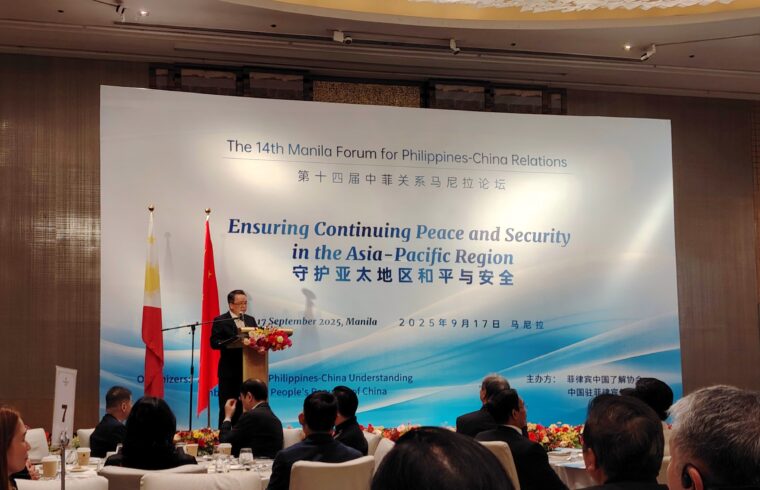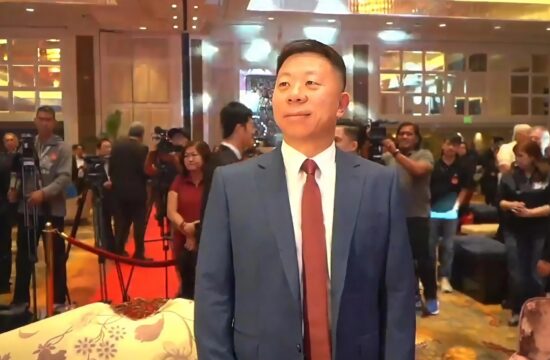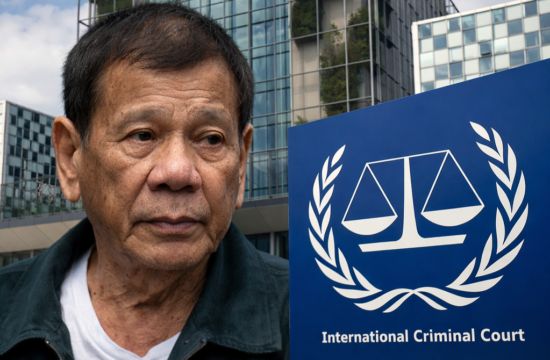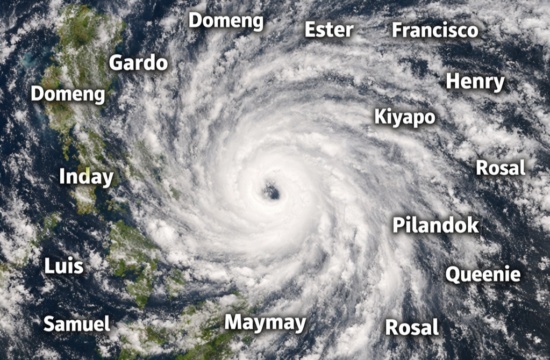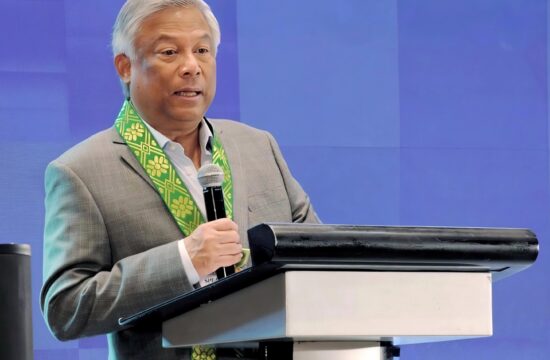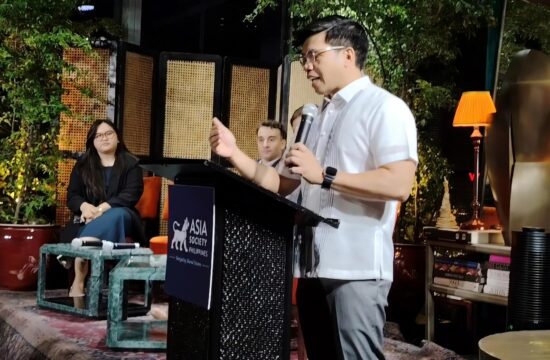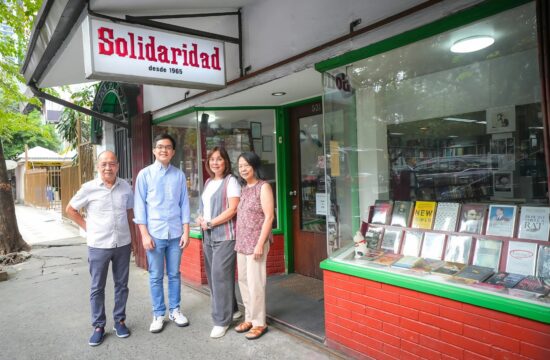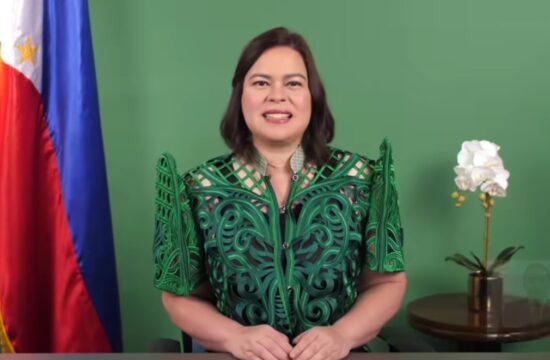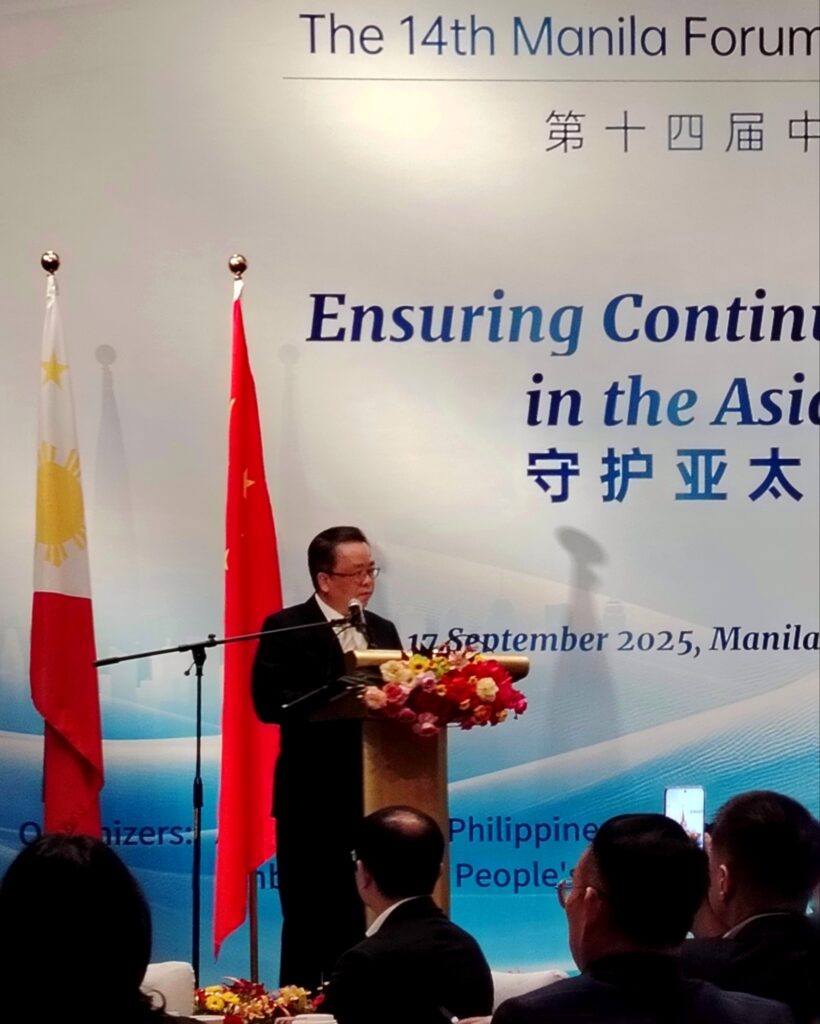
China’s top envoy in Manila on Wednesday cautioned against bringing bloc confrontations into Asia, warning that such moves could unsettle the region and weaken the fragile balance that has safeguarded peace for decades.
At the 14th Manila Forum for Philippines-China Relations, Ambassador Huang Xilian said Beijing remains committed to building a security architecture that reflects the region’s diversity and relies on dialogue rather than military alliances.
“What sort of security architecture does our region require? One that is exclusive, built only on military alliances, or one that is distinctly Asian—featuring shared security, respect for diversity, and active dialogue?” he asked.
The forum, held under the theme “Ensuring Continuing Peace and Security in the Asia-Pacific Region,” came at a time of growing geopolitical strain. While he spoke in broad terms, Huang’s message underscored China’s unease over talk of an “Asia-Pacific NATO,” a concept promoted by some Western partners and regional allies in response to China’s assertive actions in contested waters. He said such ideas amounted to divisive intentions that would only sow confrontation where cooperation is needed.
Huang placed Beijing’s Global Governance Initiative, or GGI, at the center of his remarks, presenting it as China’s blueprint for addressing the world’s mounting crises. Introduced by Chinese President Xi Jinping, the initiative calls for reforming global governance based on five core principles: sovereign equality, adherence to international law, multilateralism, a people-centered approach, and concrete action. According to Huang, these principles “respond to the challenges of our times and chart a course for transformation,” offering a way forward amid rising instability.
The ambassador portrayed the GGI as both a natural response to shifting global dynamics and a counterweight to what he described as hegemonic practices.
“Around the world, hegemonic and bullying practices—using strength to intimidate the weak, seizing benefits through force or deceit, and playing zero-sum games—are causing serious harm,” he said. He argued that no country is immune to such pressures, stressing that only cooperation can ensure resilience and shared development.
Huang also questioned the foundation of the so-called “rules-based order” promoted by the West. “On exactly what and whose rules is this ‘rules-based order’ founded? How do these rules relate to the established framework of international law?” he asked. The remarks reflected China’s long-standing contention that the order is selectively applied to serve Western interests rather than universal principles.
Against this backdrop, Huang underscored the importance of Asia-Pacific peace and stability, calling it “especially precious” at a time of global turbulence. He reminded the audience that China shares a common destiny with its neighbors and pledged that Beijing would continue to champion regional values of cooperation, openness, and inclusiveness.
“China will continue to work hand in hand with regional partners… resolutely upholding international fairness and justice, and serving as a source of stability in a turbulent world,” he said.
The Manila Forum, organized by the Association for Philippines-China Understanding and the Embassy of the People’s Republic of China, brought together Chinese and Filipino scholars to discuss peace and security. It served as a platform for what Huang described as “meaningful exchanges” aimed at fostering consensus. His address, however, conveyed a message beyond academic dialogue: that China hopes its neighbors will view the GGI not only as a global framework but also as a regional safeguard against the draw of Western-led security alliances.
By outlining China’s initiatives and posing questions about Western approaches, Huang’s remarks underscored Beijing’s effort to contribute to the ongoing discourse on global governance.
For Manila and other Southeast Asian capitals, the ambassador’s remarks underscored how debates over rules, order, and security are unfolding not only through power dynamics but also through competing visions and ideas.

